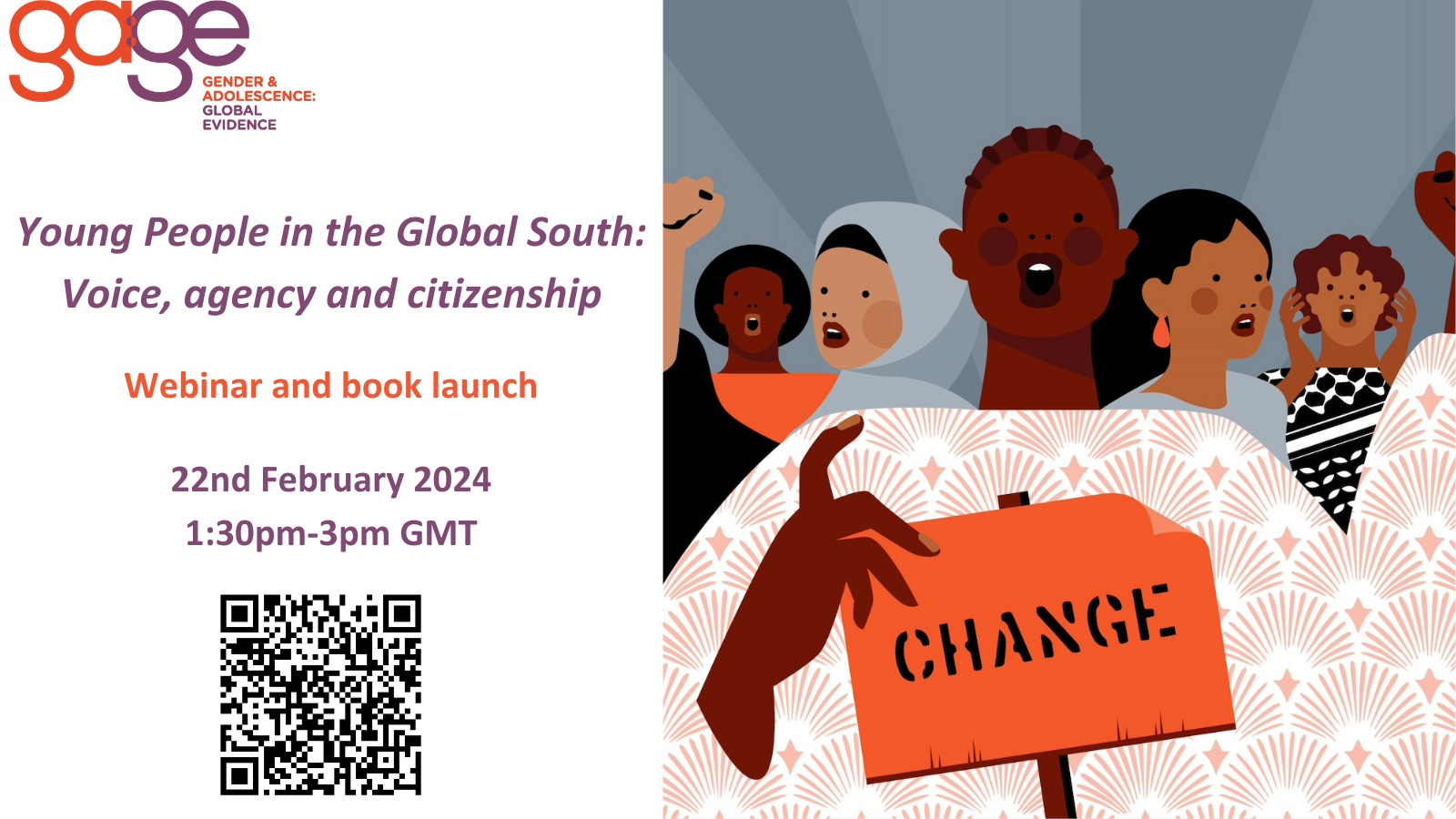On 22nd February 2024, the Gender and Adolescence: Global Evidence (GAGE) programme will host a webinar to share and discuss key findings from ‘Young People in the Global South: Voice, agency and citizenship’, a new textbook coordinated published by Routledge. The textbook is edited by Kate Pincock (GAGE and University of Oxford), Nicola Jones (GAGE and ODI), Lorraine van Blerk (University of Dundee) and Nyaradzayi Gumbonzvanda (UN Women and Rosaria Memorial Trust).
The event will feature contributions by the book’s editors, leading authors and young contributors. We invite participation, reflection and dialogue on the book’s key findings, as well as next steps for policy, research and advocacy on young people’s voice, agency and citizenship in the global South.
Central to the webinar will be five engaging and interactive parallel breakout sessions, co-facilitated by young people, to explore the book’s main themes. Session details are below and can be signed up to at registration.
Translation facility in Arabic, French and Spanish will be available.
Breakout sessions
- Researching young people’s voice and agency
This session will discuss approaches to researching voice, agency and participation. What kinds of methods and tools are best suited to understanding young people’s civic engagement? And how can we ensure that adolescents and youth across the spectrum of age, gender, race, class, disability, sexuality, citizenship status, and marital status can participate in research about their lives?
- Understanding agency and voice
This session will reflect upon some of the different ways we might understand the terms ‘voice’ and ‘agency’. What does it mean for a young person to have agency? And how might social differences such as age, gender, race, class, disability, sexuality, citizenship status, and marital status affect someone’s opportunity to have a voice and be listened to?
- Youth citizenship in the global South
This session will discuss what it means to be a young citizen in the global South during the current era of global crises and growing inequality. How does growing up in these conditions shape young people’s experiences of citizenship? And how do young people’s strategies for navigating precarity and poverty challenge Western ideas about what it means to be a ‘citizen’?
- Citizenship ‘beyond borders’
This session will look at how young people connect, organise, mobilise, challenge and protest beyond the nation-state. What role does technology play in creating opportunities for young people to engage with politics? And what are the social (eg age, gender, race, class, disability, sexuality, citizenship status, and marital status), economic and political barriers to participation in cross-border social movements?
- Policies and programming to support voice, agency and civic participation
This session will discuss different approaches to participation and how these inform policies and programming with young people. How effective have existing strategies been at supporting participation? To what extent do they engage with barriers to participation? What are some examples of good practice that could be built upon?
